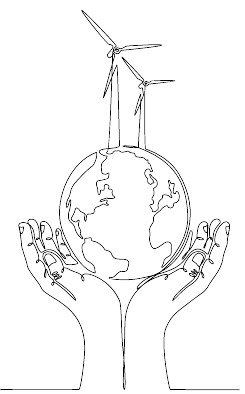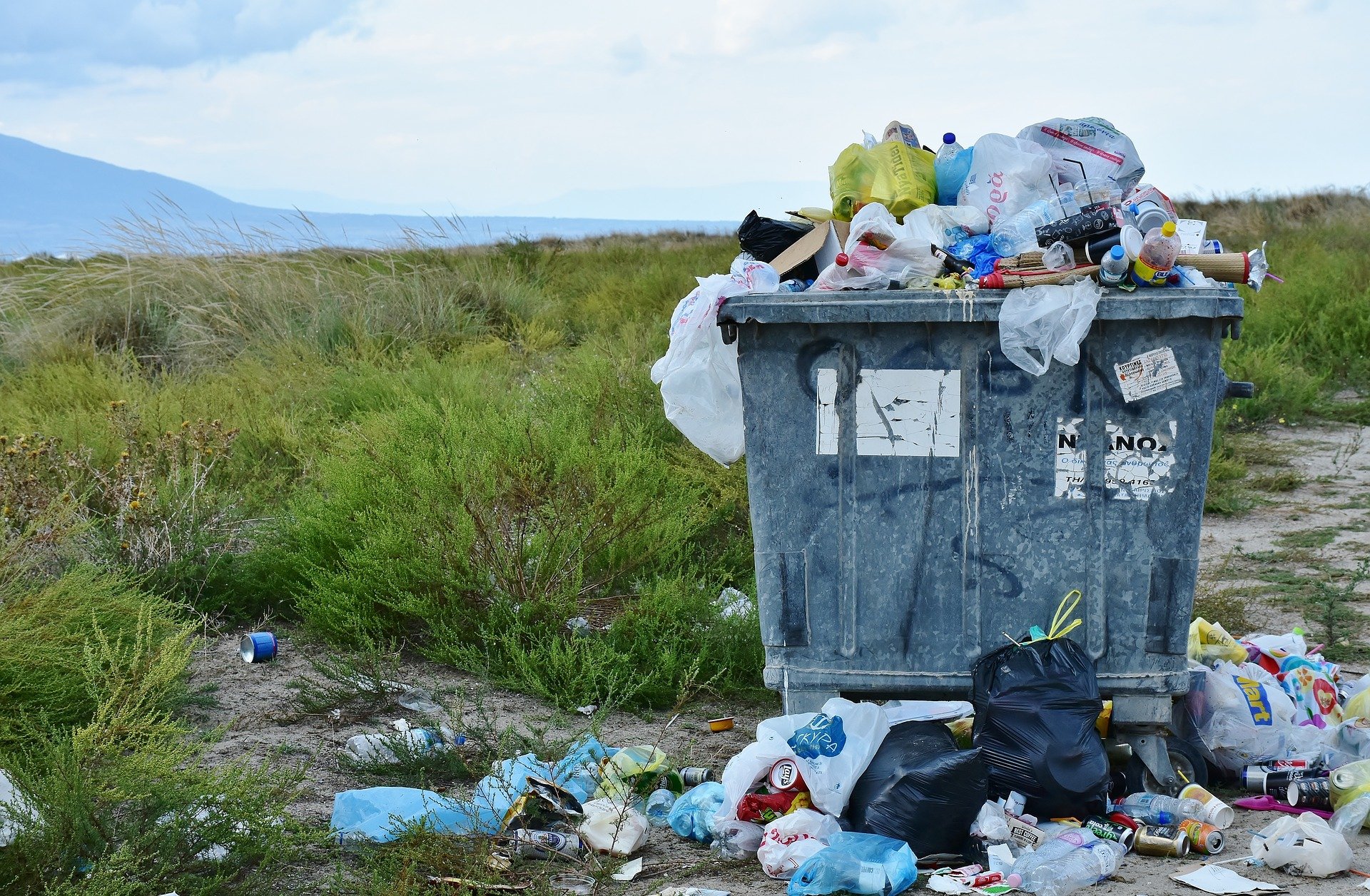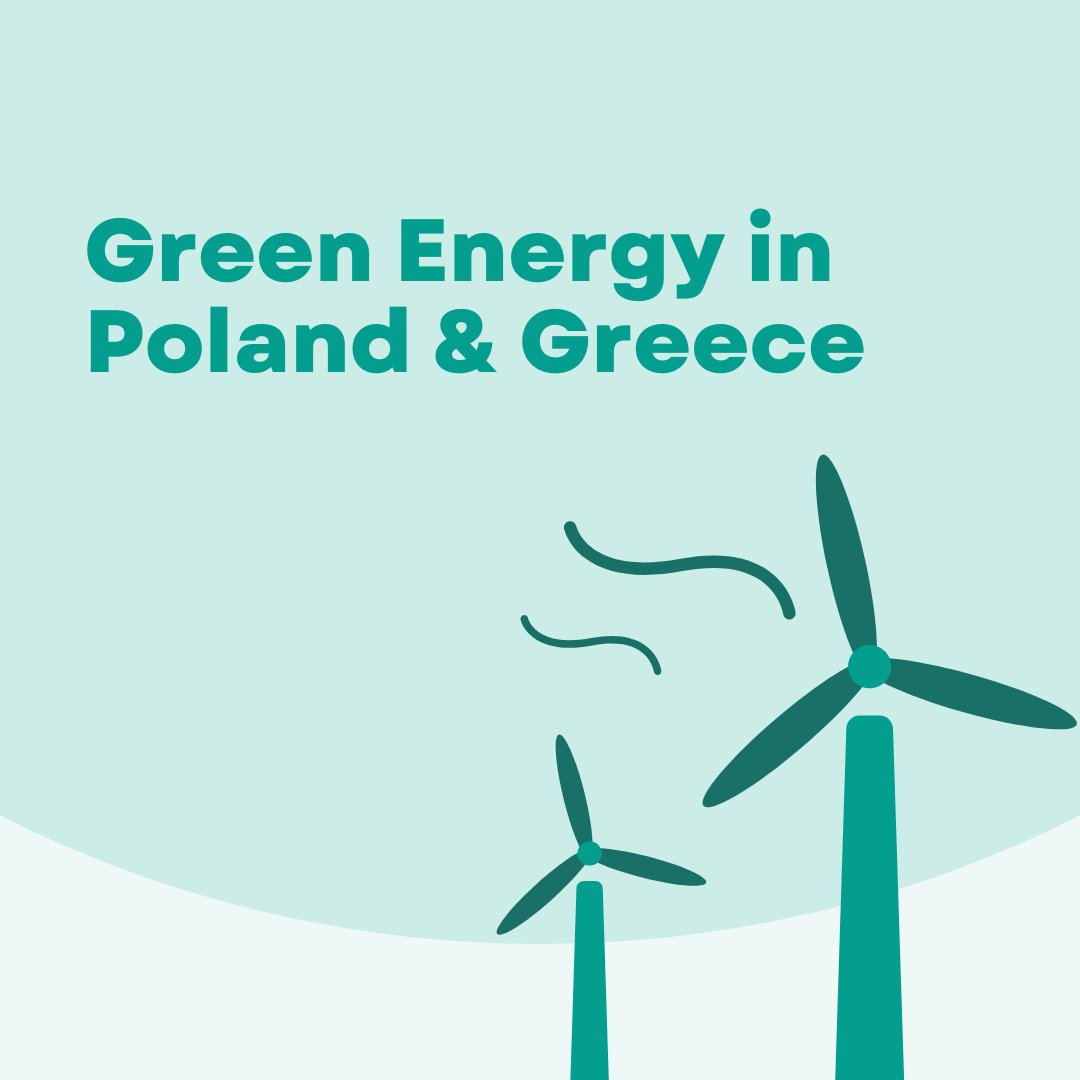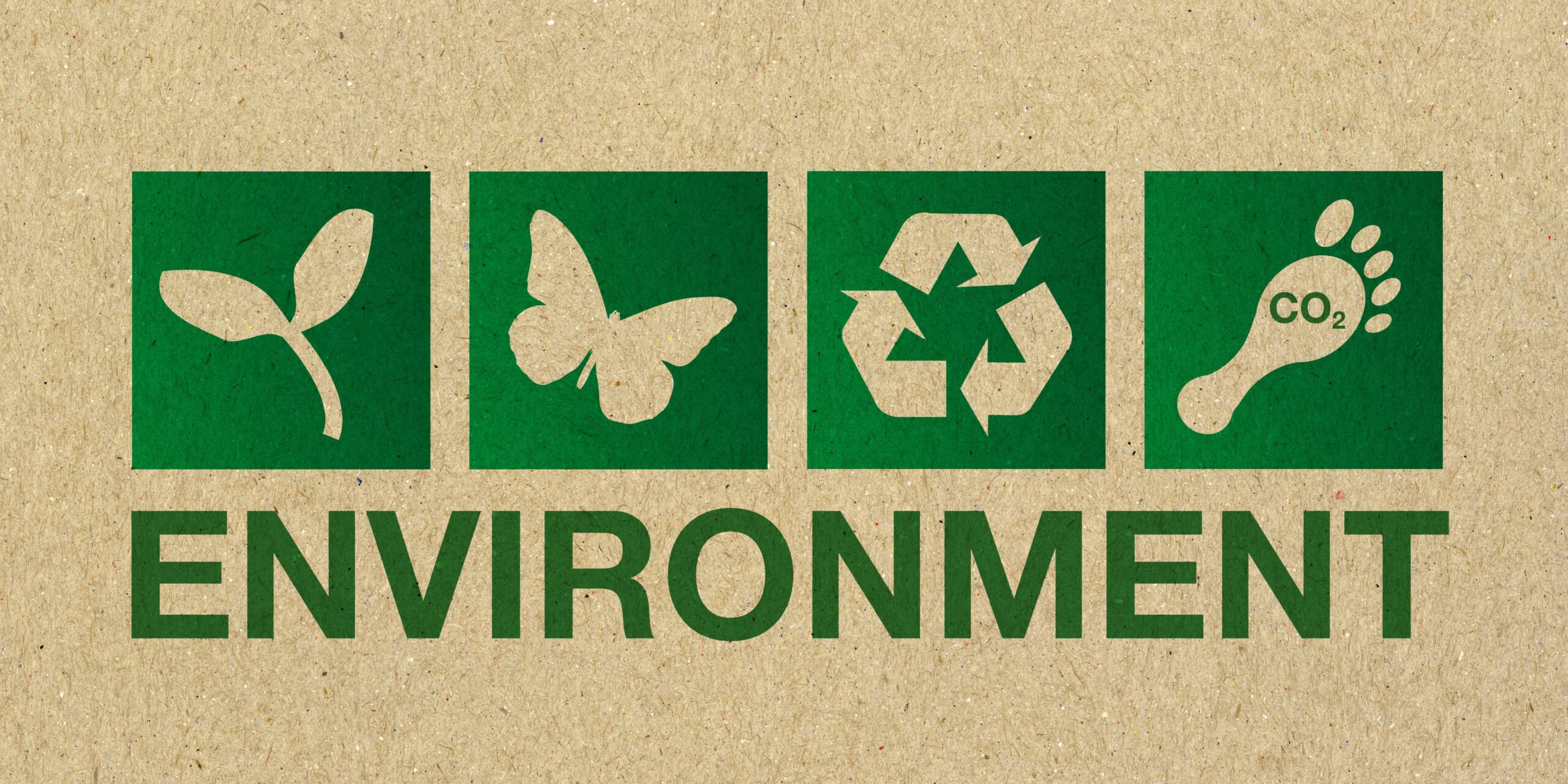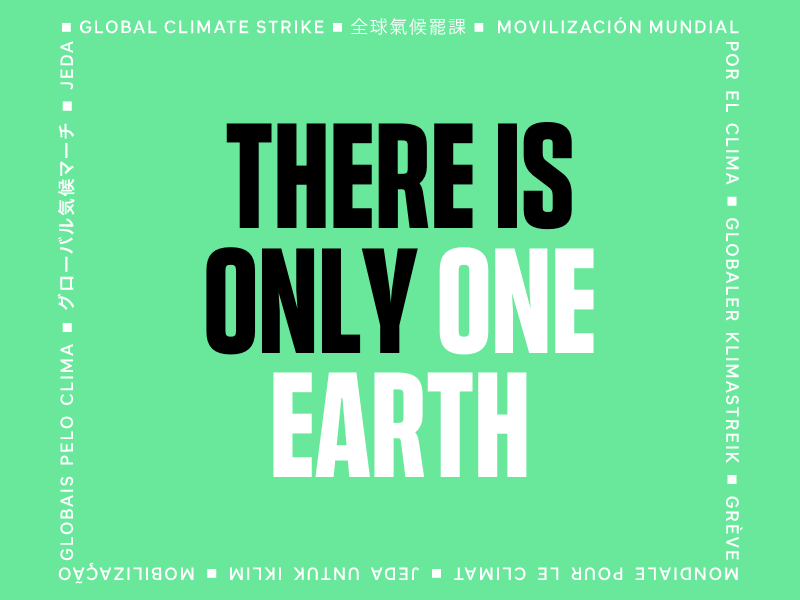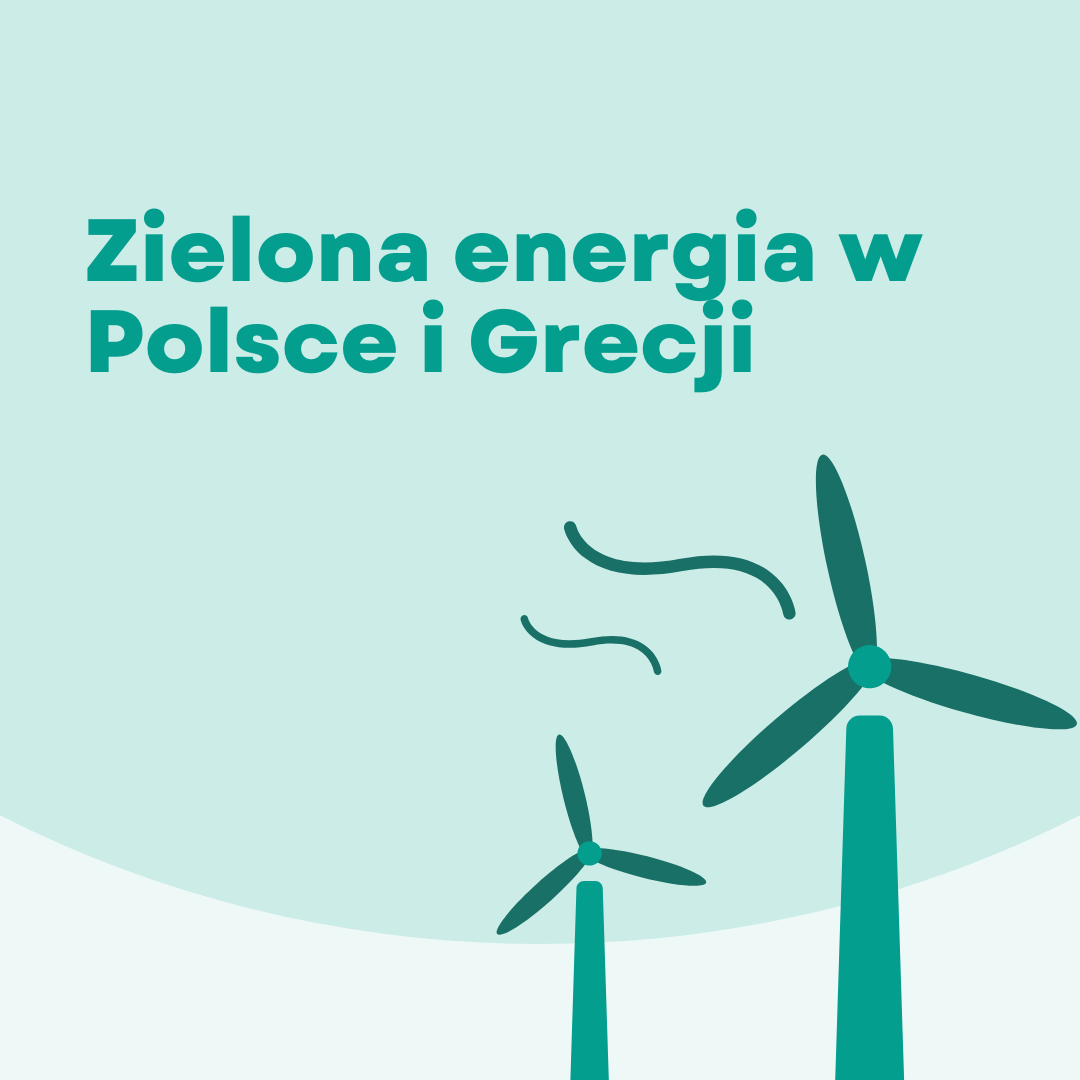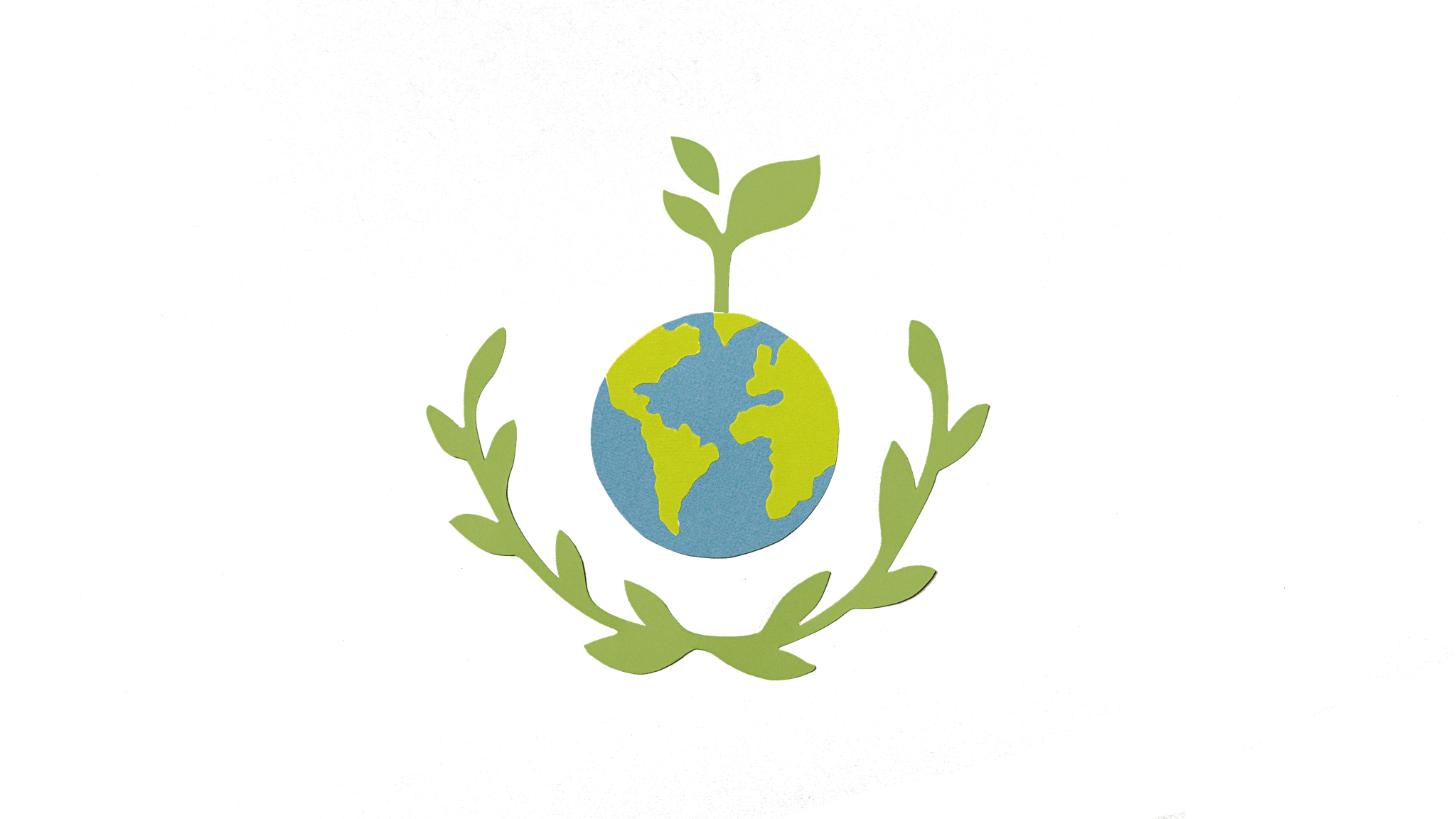Our natural environment is still in terrible condition. One of main problems is littering caused by an increasing consumerism in many countries (including Greece). We – authors of this article – asked the Greek a few questions about issues like waste sorting or plastic recycling. We wanted to see how good their knowledge of those problems is. Following this article, you’ll learn more about results of this survey and implications we made of it. Methods of collecting data Our survey consisted of five simple questions we asked people met on streets of Larisa – one of the largest cities in central Greece. We took care of finding diverse statistical sample by choosing people of different gender from different age groups. Among answerers. Even though we had problems caused by language barrier, citizens of Larisa were eagerly answering our questions. Results of our survey Results of our survey definitely aren’t optimistic. At the beginning, answerers estimated their knowledge of recycling. Opinions were very different. The most common were answers between 5 and 8. Plastic bottle needs between 100 and 1000 years to decompose but only 4 out of 15 asked gave answer from that range. The most common answer was “10” – three answerers gave this number. On second place there were two answers with an equal amount of votes – “20” and “100”. We can clearly see that the Greek tend to underestimate an amount of time necessary for natural environment to get rid of waste. Only one out of all answerers knew where an empty milk carton should be thrown away even though two out of three declared that they’re sorting trash, which is very worrying. It’s worth mentioning that people who answered correctly to our questions tend to overestimate their knowledge, while people rating it very high often had all their answers incorrect. At least, citizens of Larisa are aware of the problem as only one out of 13 found level of education in Greece about climate advanced enough. Next steps In this tough situation we should consider what should be done to end this climate crisis. In Greece, education seems to be the weakest link because even though most of the Greek are aware of this problem, they don’t understand the scale and don’t have enough knowledge to properly protect natural environment. Incorporating this education into compulsory lessons and launching an informational campaign would bring about positive results. Right now, the most important thing for Greek people to do is attempting to gain knowledge on their own to improve this terrible situation caused by the lack of knowledge.
Ecology survey results
Introduction On 18th November 2021, we conducted a street survey in Larisa about citizens’ awareness of ecology and green energy sources. Na początku tego opracowania chcielibyśmy krótko przedstawić cele badania oraz omówić wnioski. The objectives of the study At the beginning of this study, we would like to briefly present the objectives of the study and discuss the conclusions. The concept of the survey was to find out the views of the Greek people on nature conservation. We also gave them the opportunity to present their own comments on the topic at hand. Survey structure We asked them the five following questions: Do you use solar energy (in your daily life?) Do you know of any renewable/green energy sources? Do you segregate the rubbish? Do you support building nuclear power plants in your country? On a scale from 1-10, how do you rate the use of renewable energy sources in Greece? Discussion of the results We got 21 answers to our questions. The average age of the respondents is 20. Most of the respondents were women. Solar energy and its popularity among the Greeks The poll shows that 9 people use solar energy. The majority admitted they own solar panels on the roofs of their homes. Basic knowledge and maybe not that much… 61% of Greeks claim they know at least three renewable energy sources. Save, save, save the cans, throw them in the bin. We can help to save the Earth if we all pitch in. The Greek community agrees when it comes to segregating waste. An affirmative answer prevailed here. 18 people, which gives us as much as 86%, declared that they segregate waste. It is the simplest form of social responsibility regarding the protection of the environment. . Or maybe we would like to try something new…? The most controversial one was about nuclear power plants’ conduction in Hellas. The data shows that the minimal majority of 57% of the interviewees are opposed to the idea of building nuclear power plants. The purpose of asking this question was to learn about the approach of the Greeks to the use of advanced technology so far not used in the country. How do you see it? By analyzing data describing the use of raw material potential renewable Energy sources, one can conclude – public opinion is ambiguous. Relatively low and very high marks contrasted with each other. Own comments of the respondents Listening to the voice of people actively participating in the survey is of particular importance for the credibility of the research. Inhabitants wanted to expand on the statement about the idea of building nuclear power plants. Opinions were divided. Part of the group declares that this form of receiving energy is better for the natural environment, more efficient. On the other hand, some people said they have feared the dangers of such a risky venture. Final conclusions Based on our survey, we can see in which aspects the Greeks are almost unanimous, and in which their views are divergent. As you can see, the most divisive question concerned the use of nuclear energy. Why? There may be many reasons for this. First of all, it is the fear of a nuclear explosion. However, we have also heard numerous voices saying that they believe Greece can use many other sources of energy. The Greeks themselves stated that the raw material potential is not necessarily fully used. It is worth mentioning here that as much as 40% of energy in Greece comes from the sun. Although, the residents jointly opted for recycling and declared that they segregate waste themselves. In recent years, the subject of the steadily deteriorating state of the Earth has been raised more and more often. So we are glad that the Greeks willingly took part in the poll, thus showing that the good of our planet is not indifferent to them.
Podsumowanie ankiety na temat ekologii
Wstęp 18 listopada 2021 roku przeprowadzaliśmy sondę uliczną w Larisie dotyczącą świadomości mieszkańców miasta na temat ekologii oraz zielonych źródeł energii. Na początku tego opracowania chcielibyśmy krótko przedstawić cele badania oraz omówić wnioski. Cele badania Koncepcją sondażu było poznanie opinii mieszkańców Grecji na temat ochrony przyrody. Umożliwiliśmy im również przedstawienie własnych uwag na poruszany temat. Struktura ankiety Zadaliśmy pięć następujących pytań: 1. Czy korzystasz z energii słonecznej w codziennym funkcjonowaniu? 2. Czy znasz jakieś odnawialne źródła energii? 3. Czy segregujesz odpady? 4. Czy popierasz budowę elektrowni atomowych w swoim kraju? 5. W skali 1-10 jak oceniasz korzystanie z potencjału surowcowego odnawialnych źródeł energii w Grecji? Omówienie wyników Uzyskaliśmy 21 odpowiedzi na nasze pytania. Średnia wieku ankietowanych wynosiła 20 lat. Większość ankietowanych stanowiły kobiety. Energia solarna i jej popularność wśród Greków Z sondażu wynika, że 9 osób wykorzystuje energię solarną. Większość z nich przyznała, że są posiadaczami paneli słonecznych na dachach swoich domów. Podstawowa wiedza, a może jednak nie aż tak bardzo… 61% Greków stwierdza, że zna co najmniej 3 odnawialne źródła energii. “Wie to prawie każda nacja – najważniejsza segregacja.” W aspekcie segregacji odpadów społeczność grecka jest zgodna. Przeważyła tutaj odpowiedź twierdząca. 18 osób, co daje nam aż 86%, zadeklarowało się, że segreguje odpady. Jest to najprostsza forma odpowiedzialności społecznej w sprawie ochrony środowiska. A może chcielibyśmy spróbować czegoś nowego…? Pytanie, które wzbudziło najwięcej kontrowersji dotyczyło budowy elektrowni atomowych na terenie Hellady. Z danych wynika, że minimalna większość licząca 57% wszystkich ankietowanych nie podziela pomysłu budowy elektrowni jądrowych. Celem zadania tego pytania była chęć poznania podejścia Greków do wykorzystania zaawansowanej technologii dotychczas niewykorzystywanej w kraju. A jak widzisz to Ty? Analizując dane opisujące wykorzystanie potencjału surowcowego odnawialnych źródeł energii w Grecji można dojść do wniosku, że opinia nie jest jednoznaczna. Kontrastowały ze sobą stosunkowo niskie jak i bardzo wysokie oceny. Uwagi własne osób ankietowanych Szczególne znaczenie dla wiarygodności ankiety ma wsłuchanie się w głos osób biorących czynny udział w badaniu. Mieszkańcy chcieli rozwinąć swoją wypowiedź na temat budowy elektrowni atomowych. Zdania były podzielone. Część uważała, że taka forma otrzymywania energii jest lepsza dla środowiska, bardziej wydajna, natomiast reszta obawiała się niebezpieczeństwa, jakie niesie za sobą tak ryzykowne przedsięwzięcie. Końcowe wnioski Na podstawie przeprowadzonej przez nas ankiety, możemy zaobserwować w jakich aspektach Grecy są niemal jednomyślni, a w jakich zaś ich poglądy są rozbieżne. Jak widać, najbardziej dzielące pytanie dotyczyło wykorzystywania energii atomowej. Dlaczego? Powodów może być wiele. Przede wszystkim jest to obawa przed wybuchem jądrowym. Usłyszeliśmy jednak też liczne głosy, które mówiły, że ich zdaniem Grecja ma możliwości, aby używać wielu innych źródeł energii. Sami Grecy stwierdzali, że potencjał surowcowy niekoniecznie jest w pełni wykorzystywany. Tutaj warto wspomnieć, że aż 40% energii w Grecji pochodzi ze słońca. Mieszkańcy wspólnie jednak opowiadali się za sprawą recyklingu i deklarowali, że sami segregują odpady. W ciągu ostatnich lat coraz częściej porusza się temat stale pogarszającego się stanu planety Ziemi. Cieszymy się wiec, że Grecy chętnie brali udział w sondzie pokazując tym samym, że jej dobro nie jest im obojętne.
Greeen Energy in Greece and in Poland
What ARE green Energy sources? Green energy sources are natural resources eg.: Nuclear fission Wind Water Sunlight Biofuels Geotherms Why should we use green energy? Our planet’s climate has been sent into a downward spiral due to humanity realising more and more greenhouse gases into the atmosphere since the industrial revolution. Undoubtedly if this trend continues the climate crisis that we are facing right now, will destroy our planet. Power production releases 210 grams/kWh in Greece and 758 grams/kWh in Poland (of CO2). Changing our infrastructure to accommodate the sustainable energy production is arguably one of the easiest ways to drastically decrease our carbon footprint. Pros & Cons of different green power plants Solar Farms Pros Unlimited power from the nuclear fusion of hydrogen No pollution Cons Does not generate power at night Takes up relatively a lot of space per kWh production Water Turbines Pros No pollution Does not require a lot of maintenance Are relatively expensive Cons Depends on environmental conditions Is a noise pollutant Can endanger the lives of wildlife? Takes up a lot of space Atomic fission reactors Pros: Does not require a huge amount of area Are electrically efficient Reliable; are not dependant on environmental factors Depending on the material used, are less prone to malfunctions Cons: They produce nuclear waste Thorium and Uranium are technically non-renewable Biomass powerplants Pros: Produces a lot less pollutants in comparison with fossil fuels Can be used without consideration of environmental factors Cons: Pollutes the air Uses up a lot of energy when producing energy Can be dependant on the season Energetic Situation in Greece In Greece wind power is one of the most attractive forms of producing energy in Europe. In huge part of the country the average wind speed is 8 m/s throughout the vast amount of the year. Solar energy is used substantially, due to Greece’s daily exposure to the sun. photovoltaic panels are put on roofs of single family houses and are used for the needs of the tenants Energetic situation in Poland Currently in Poland the use of alternative energy sources is steadily increasing. Albeit at a rate two times slower than the European average, but we have to remember that the polish economy? Was founded on coal and its not that easy to change the usage? of this fuel. In Poland the fastest growing type of green energy are wind turbines, with the most of them being in Pomorze voivodship, due to its flat terrain and close proximity to the Baltic Sea. Solar energy in Poland is used in trace amounts, mostly due to the geographical location of Poland. A similar situation is with hydroelectric turbines where building them is hard because Poland lacks high mountains with big rivers. As of writing this article, in Poland there are no atomic powerplants, although there are plans of building one in the 2020-2030 years.
Ecology – is the knowledge of Polish people on this subject sufficient?
At the beginning of November, in one of the high schools in Sieradz, we conducted an anonymous survey to check knowledge of the environmental protection. Almost 200 people took part in it and results of the poll are surprising (read to the end). Climate changes- school community’s knowledge We started the survey by asking respondents how they rate their knowledge of climate changes. Most of them (almost 60%) described their knowledge as average. Quite a lot of participants replied that their knowledge was at a high level (about 32% of people) and only 8% of them claimed that their knowledge in this area was poor. The mistakes of society There were many different questions in the field of ecology in the survey. We mainly referred to problematic issues and frequently made mistakes disadvantageous for the environment. We asked the students, e.g. how often they segregate waste, leave open taps, lights turned on and chargers and power adapters in the socket. In most cases, they describe their actions as preventing the degradation of nature. However, they believe that people and their actions on Earth are the most responsible for climate changes. How to take care of the environment? Our main goal was to find out how, according to the respondents, people should protect the environment. Their responses mainly referred to activities that they themselves can undertake and propagate in their households and surroundings. Examples of the proceedings they have proposed are: • waste segregation • saving water and energy • reduction of plastic consumption • using of bicycles and public transport instead of cars and planes • increasing students’ awareness of climate changes in schools Is the meat reduction in the diet important for the climate? We asked in the survey: Will less meat consumption have a positive effect on climate change? Almost 50% of the respondents said that this is a significant issue in the fight for the environment and they are absolutely right! Few people know that meat production causes the emission of methane, carbon dioxide and nitrous oxide, each of which has a negative impact on the climate. Interestingly, almost 15% of global greenhouse gas emissions are gases produced during the digestive processes of farm animals (mainly cattle and sheep). However, beef and dairy production cause 65% of all derived from farm animals emissions. Education of young people Despite the upward trend in the knowledge of climate change among students, their knowledge base is still incomplete. We have to strive to broaden horizons and increase the knowledge of this topic, especially among young people, on whom the fate of our planet depends the most. What makes us content is that young people are aware of the seriousness of the drastic situation in which we are. We have to remember that we only have one Earth and we must all take care of it!
Organizations working for climate in Poland and Greece
Although climate changes are a popular plot, not many of us can name examples of organizations which work for the environment. Results of the street survey show that the majority of people knows from 0 to 2 pro-ecologic organizations. Additionally as much as 70% respondents rate the government’s policies in the topic of ecology as insufficient. So here come the questions: · What climate-related ventures do we have in Poland ? · What organizations of this type work in Greece ? · How can we support them ? Who is responsible for climate activities in Poland ? Pro-ecologic non-governmental organizations can be divided into those from Poland and affiliates of international ventures. All those institutions are associated as Koalicja Klimatyczna. Associations created in Poland · Fundacja Aeris Futuro This non-profit stands out especially with two projects: Donational program „Czas na las” – financial and meritoric support of programs connected with forestation, which until now caused in total 160 thousand trees being planted. Climathon – worldwide 24-hour marathon promoting activities in the field of sustainable living · Klub Gaja One of the oldest associations protecting natural habitats and animal laws in Poland. It is the first Polish climate organization which has its affiliate in western Europe – Club Gaia UK. · Alarm Smogowy Social movement popagating the prevention of air pollution in Poland. It unites 38 local subjects. International affiliates working in Poland · WWF One of the most well-known international organizations protecting the nature. In Poland it also conducts pro-ecological activities. · Greenpeace An organization prioritizing protection of forests, bees and sustainable agriculture. · Youth Strike for Climate An international initiative of students within which climate strikes and educational actions are organized. · United Nations Global Compact Network Poland This organization sets the idea of sustainable development in business as its aim. It collaborates with many companies and interessants with the goal of creating a friendly world. How do climate actions look like in Greece ? Similar to Poland, Greek climate organizations are divided into those set up in Greece and international branches like WWF Greece or Greenpeace Greece. Associations created in Greece · Ecological Movement of Thessaloniki It is a Greek activists’ organization placed in Thessaloniki. Since 2002 it focuses mainly on the fight against genetically modified organisms. · Ecoweek It is a private non-profit organization, which after the start in 2005 successfully broadens its international work. The mission of Ecoweek is raising awareness and then changing the habits for more ecological. · Environmental Centre ARCTUROS From the Old-Greek „Guardian of the Bear” – this organization deals mainly with the protection of both brown bears and their habitat. What comes next ? Engaging in the activities of organizations (financial too), the number of which is constantly rising, or even creating our own ideas makes us the participants of the fight for a better future.
Zielone źródła energii w Polsce i Grecji
Jakie źródła energii są zielone? Są to te, które korzystają z naturalnych źródeł. Najpopularniejsze to: · Słońce · Wiatr · Woda · Rozszczepienie jądrowe · Źródła geotermalne · Biomasa · Biopaliwa Dlaczego powinniśmy używać zielonych źródeł energii? Od początku rewolucji przemysłowej klimat naszej planety stacza się po równi pochyłej od uwalnianych przez ludzkość gazów cieplarnianych. Zdecydowanie – jeśli nie zmienimy aktualnych trendów kryzys, jaki teraz przeżywamy, zniszczy naszą planetę. Produkcja energii elektrycznej produkuje 758 g/kWh CO2 w Polsce oraz 210 w Grecji. Zmiana naszej infrastruktury pod wprowadzenie dobrej dla środowiska produkcji energii jest jednym z najprostszych sposobów drastycznego zmniejszenia naszego śladu węglowego. Plusy i minusy poszczególnych zielonych elektrowni. Panele fotowoltaiczne Plusy: · Nielimitowany zasób światła słonecznego · Brak zanieczyszczeń Minusy: · Nie generują elektryczności w nocy oraz podczas złej pogody. · Są droższe w porównaniu z innymi źródłami · Zajmują dużo miejsca aby wygenerować znaczącą ilość energii. Turbiny wiatrowe Plusy: · Brak zanieczyszczeń · Nie wymagają znacznego nadzoru · Względnie niedrogie w budowie Minusy: · Zależne od warunków naturalnych · Produkują hałas · Mogą być niebezpieczne dla ptaków oraz dzikiej przyrody · Zajmują dużo miejsca Turbiny wodne Plusy: · Woda nie powoduje zanieczyszczeń Minusy: · Wymagają zbiornika wodnego · Mogą zagrażać środowisku Reaktory atomowe Plusy: · Elektrownie zajmują mało miejsca · Wydajne energetycznie · Niezawodne; nie są zależne od czynników zewnętrznych · Zależnie od używanego materiału są mniej podatne na wypadki Minusy: · Odpady nuklearne · Tor i uran i nie są odnawialne Elektrownie biomasowe Plusy: · Biomasa jest czystsza od paliw kopalnych · Mogą działać bez przerwy Minusy: · Mogą zatruwać powietrze · Zużywają dużo energii w produkcji Mogą być zależne od sezonu Sytuacja energetyczna w Grecji i Polsce. Aktualnie w Polsce udział alternatywnych źródeł w produkcji energii stopniowo rośnie. Jest on co prawda dwa razy niższy od średniej unijnej, ale trzeba pamiętać, że nasza gospodarka opiera się na węglu i nie jesteśmy w stanie radykalnie zmniejszyć wykorzystania tego paliwa. W Polsce najlepiej rozwija się wykorzystanie energii wiatrowej, najwięcej jest ich na Pomorzu, z uwagi na płaski teren i brak przeszkód terenowych. Energia słoneczna jest wykorzystywana na niewielką skalę, głównie dlatego, że nasze warunki naturalne nie są bardzo sprzyjające; mamy względnie mało dni słonecznych w roku. Podobnie jest z energią wód, nie rozwija się ona w ogóle ze względu na brak wysokich gór z dużymi rzekami. W Polsce nie ma póki co elektrowni atomowych, chociaż planuje się budowę pierwszej w latach 2020-2030. W Grecji energia wiatrowa jest jedną z najbardziej atrakcyjnych form produkcji energii w Europie. W wielu częściach kraju wiatr wieje z prędkością średnią 8 m/s przez długi czas w roku. Energia słoneczna wykorzystywana jest prężnie, jako że na terenie Grecji słońce świeci intensywnie przez długi czas. Panele fotowoltaiczne są często umieszczone na dachach domów jednorodzinnych i są używane na potrzeby mieszkańców przybytku. W Grecji nie ma żadnych elektrowni atomowych oraz nie planuje się ich budowy z uwagi na występowanie trzęsień ziemi.
Organizacje działające na rzecz klimatu w Polsce i Grecji
Mimo że zmiany klimatu są popularnym tematem, niewielu z nas potrafi podać przykłady organizacji, które zajmują się działaniem na rzecz środowiska. Wyniki sondy ulicznej pokazują, że większość ludzi zna od 0 do 2 organizacji proekologicznych. Dodatkowo aż 70% respondentów ocenia działania rządu w zakresie ekologii za niewystarczające. Pojawiają się więc pytania: · Jakie przedsięwzięcia na rzecz klimatu mamy w Polsce ? · Jakie organizacje tego typu działają w Grecji ? · Jak je wspomagać ? Kto odpowiada za działania klimatyczne w Polsce ? Proekologiczne organizacje pozarządowe dzielą się na te wywodzące się z Polski oraz na filie przedsięwzięć międzynarodowych. Wszystkie te instytucje są zrzeszone jako Koalicja Klimatyczna. Stowarzyszenia założone w Polsce · Fundacja Aeris Futuro Ten non-profit wyróżnił się szczególnie dwoma poniższymi projektami: Program dotacyjny „Czas na las” – finansowe i merytoryczne wsparcie programów dotyczących zalesiania, w wyniku którego do tej pory łącznie posadzono 160 tysięcy drzew. Climathon – światowy 24-godzinny maraton propagujący działania na rzecz ochrony środowiska · Klub Gaja Jedno z najstarszych stowarzyszeń chroniących środowisko naturalne i prawa zwierząt w Polsce. Jest pierwszą organizacją klimatyczną, która ma swoją odnogę na zachodzie Europy – Club Gaia UK. · Alarm Smogowy Społeczny ruch na rzecz przeciwdziałania zanieczyszczeniom powietrza w Polsce. Zrzesza 38 lokalnych podmiotów. Filie międzynarodowe działające w Polsce · WWF Jedna z najbardziej znanych organizacji międzynarodowych chroniąca przyrodę. W Polsce podejmuje również działania proklimatyczne. · Greenpeace Organizacja priorytetyzująca ochronę lasów, pszczół, zrównoważonego rolnictwa. Prowadzi ona szeroko rozpowszechnione protesty i pokojowe akcje. · Młodzieżowy Strajk Klimatyczny Międzynarodowa inicjatywa uczniów i studentów, w ramach której odbywają się strajki na rzecz klimatu oraz podejmowane są inne działania w celu edukacji młodych na ten temat. · United Nations Global Compact Network Poland Organizacja ta stawia sobie na celu zrealizowanie idei zrównoważonego biznesu. Współpracuje ona z wieloma firmami i interesariuszami w celu stworzenia przyjaznego dla człowieka świata. Jak wyglądają działania klimatyczne w Grecji ? Podobnie jak w Polsce, również w Grecji organizacje klimatyczne dzielą się na te założone w Grecji i filie międzynarodowe tj. WWF Greece czy Greenpeace Greece. Stowarzyszenia założone w Grecji · Ecological Movement of Thessaloniki Jest to grecka organizacja aktywistów osadzona w Salonikach. Od 2002 roku skupia się przede wszystkim na walce przeciwko genetycznie modyfikowanej żywności. · Ecoweek To prywatna organizacja non-profit, która po starcie w 2005 r. sukcesywnie rozszerza swoją działalność wielonarodową. Jej misją jest zwiększenie świadomości, a następnie zmienienie nawyków na bardziej ekologiczne. · Environmental Centre ARCTUROS Ze starogreckiego „Obrońca Niedźwiedzia” – organizacja ta przede wszystkim zajmuje się ochroną niedźwiedzi brunatnych i ich habitatów. Co będzie dalej ? Włączając się w działania organizacji (również finansowo), których obecnie stale przybywa albo nawet tworząc własne pomysły, jesteśmy uczestnikami walki o lepszą przyszłość.
THE GREEN DEAL – can we hope for real change?
WHAT IS THE GREEN DEAL? WHAT ARE THE OBJECTIVES OF THE GREEN DEAL? WHAT IS THE PATH TOWARDS CLIMATE CHANGE? WHAT IS THE RENEWAL WAVE? WHY ARE WE TALKING ABOUT THE “GREEN DEAL” RIGHT NOW? WHAT IS THE FARM-TO-FORK AGRICULTURAL STRATEGY? WHAT ARE THE OBJECTIVES OF THE FARM-TO-FORK STRATEGY? What is the green deal? We define the Green Deal as all ideas, inventions and actions with the leading and monumental goal of achieving climate neutrality across Europe by 2050. What are the goals of the green deal? The overarching goal of the Green Deal is to rebuild the economy to reduce Europe’s greenhouse gas emissions to zero by 2050 at the latest. The goal of climate neutrality has been endorsed by the Parliament and the European Council and is to be enshrined as legally binding in the European Climate Law, a new regulation currently in the legislative pipeline. What is the path towards climate change? The first step towards climate neutrality under the Green Deal is to be an increase in the EU’s commitment to reduce emissions from the current 40% to 50 or 55%. A decision on this is to be taken in the autumn, and will entail an increase in other targets relating to the share of renewable energy sources and limiting the growth rate of energy demand, as well as the introduction of stricter regulations concerning emissions from the industrial, transport and agricultural sectors and a radical reduction in energy consumption in buildings, which is to be achieved through the Green Deal’s flagship initiative, the so-called “renovation wave”. What is the “Renovation wave” adb what are its main objectives? “RENOVATION WAVE” is the European Commission’s strategy to improve air quality. Its priorities are tackling the energy poverty of the worst performing buildings, renovating public buildings (i.e. schools, hospitals, administrative buildings, etc.), and decarbonising heating and cooling. Why are we talking about a “Green deal” right now? Due to human activity, the earth’s ecosystem is in an indescribable crisis. Already now, we are witnessing radical climate change, which is becoming troublesome and difficult for normal functioning on our planet. Moreover, environmental degradation is leading to the irreversible extinction of some animal species, e.g. today the Great Panda, which lives in China, is particularly endangered. Farm to table strategy what is it? The Farm-to-Fork Strategy is part of the Green Deal, it aims to contribute to achieving climate neutrality by 2050. It comprehensively addresses the challenges associated with sustainable food systems and emphasizes the importance of the links between human health, community health and planetary health. What are the objectives of the farm to table strategy? The strategy aims – above all – to reduce the use of pesticides, antibiotics and fertilizers and to increase the share of organic farming. The implementation of these assumptions will require multiple technological applications, mainly of an investment nature, requiring extensive transfer of new knowledge and, above all, high adaptation costs. It is a great plus for our future to invest in plant-based diets, as doing so can spare animals suffering. Sources: https://www.europarl.europa.eu www.gov.pl https://www.consilium.europa.eu https://www.teraz-srodowisko.pl/aktualnosci/gatunki-endemiczne-zmiany-klimatu-10162.html
ZIELONY ŁAD – czy możemy liczyć na realne zmiany?
CZYM JEST “ZIELONY ŁAD”? JAKIE SĄ CELE “ZIELONEGO ŁADU”? JAKA JEST DROGA W KIERUNKU ZMIAN NA RZECZ KLIMATU? CZYM JEST FALA RENOWACJI? DLACZEGO AKURAT TERAZ MÓWIMY O “ZIELONYM ŁADZIE”? STRATEGIA ROLNA “OD POLA DO STOŁU” CO TO JEST? JAKIE CELE ZAKŁADA STRATEGIA ROLNA “OD POLA DO STOŁU”? Czym jest “Zielony Ład”? Zielony ład definiujemy jako wszelkie idee, inwencje i działania, których czołowym i monumentalnym celem jest doprowadzenie do neutralności klimatycznej w całej Europie do 2050 roku. Jakie są cele “Zielonego Ładu”? Nadrzędnym celem Zielonego Ładu jest przebudowa gospodarki, która pozwoli najpóźniej do 2050 r. zredukować emisję gazów cieplarnianych w Europie do poziomu zerowego. Cel neutralności klimatycznej zyskał poparcie Parlamentu i Rady Europejskiej i ma zostać zapisany, jako prawnie wiążący w Europejskim Prawie o Klimacie, czyli nowym rozporządzeniu, będącym obecnie w toku prac legislacyjnych. Jaka jest droga w kierunku zmian na rzecz klimatu? Pierwszym krokiem w kierunku neutralności klimatycznej w ramach Zielonego Ładu, ma być zwiększenie unijnego zobowiązania do redukcji emisji, z obecnych 40 proc. do 50 lub 55 proc. Decyzja o tym, ma zapaść jesienią i pociągnie za sobą konieczność zwiększenia pozostałych celów, dotyczących udziału OZE i ograniczenia tempa wzrostu zapotrzebowania na energię, a także wprowadzenia ostrzejszych regulacji dotyczących emisji z sektorów przemysłu, transportu i rolnictwa oraz radykalnego ograniczenia zużycia energii w budynkach, czemu ma służyć flagowa inicjatywa Ładu, czyli tzw. fala renowacji. Czym jest “fala renowacji” i jakie są jej główne cele? “FALA RENOWACJI” to strategia Komisji Europejskiej, która ma na celu poprawę jakości powietrza. Jej priorytetem jest rozwiązywanie problemów ubóstwa energetycznego budynków o najgorszej charakterystyce, renowacji budynków publicznych (tj. szkoły, szpitale, budynki administracyjne itp.), oraz obniżanie emisyjności ogrzewania i chłodzenia. Dlaczego akurat teraz mówimy o “Zielonym Ładzie”? Z powodu działalności człowieka, ekosystem ziemi znalazł się w nieopisanym kryzysie. Już teraz obserwujemy radykalne zmiany klimatyczne, które stają się uciążliwe i trudne dla normalnego funkcjonowania na naszej planecie, ponadto degradacja środowiska prowadzi do nieodwracalnego wyginięcia niektórych gatunków zwierząt, np. dziś szczególnie zagrożona jest Panda Wielka, zamieszkująca tereny Chin. Strategia rolna “od pola do stołu” co to? Strategia „Od pola do stołu” jest elementem Zielonego Ładu, ma się ona przyczynić do osiągnięcia neutralności klimatycznej do 2050 roku. Uwzględnia ona w kompleksowy sposób wyzwania, związane ze zrównoważonymi systemami żywnościowymi i podkreśla znaczenie związków między zdrowiem ludzi, zdrowiem społeczeństwa i zdrowiem planety. Jakie cele zakłada strategia rolna “od pola do stołu”? Strategia zakłada- przede wszystkim- redukcję zużycia pestycydów, antybiotyków i nawozów, jej zadaniem jest również zwiększenie udziału rolnictwa ekologicznego. Realizacja tych założeń wymagać będzie wielorakich zastosowań technologicznych, głównie o charakterze inwestycyjnym, wymagających szerokiego transferu nowej wiedzy, a przede wszystkim, wysokich kosztów dostosowawczych. Wielkim plusem dla naszej przyszłości jest inwestycja w diety roślinne, bowiem takie działanie może oszczędzić zwierzętom cierpienia. Źródła: https://www.europarl.europa.eu www.gov.pl https://www.consilium.europa.eu https://www.teraz-srodowisko.pl/aktualnosci/gatunki-endemiczne-zmiany-klimatu-10162.html

